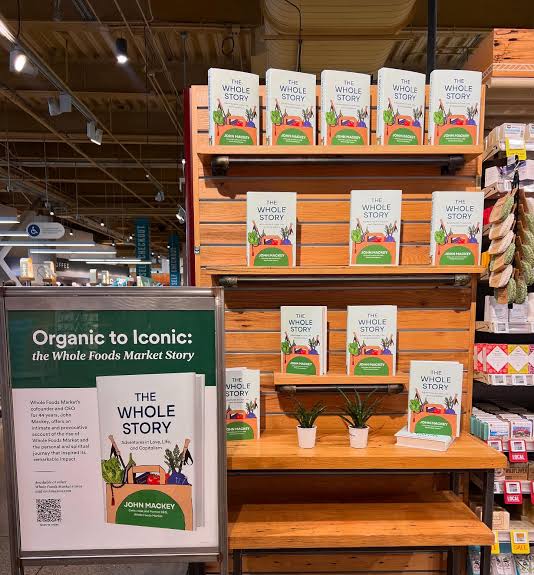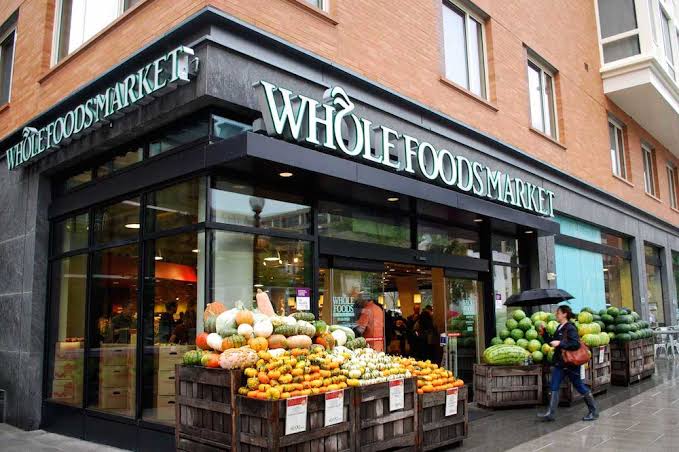Whole foods are foods that are minimally processed and free from artificial ingredients, offering the highest quality of nutrition and flavor. These foods, often found in their natural state, are rich in nutrients, vitamins, and minerals that are vital for overall health and well-being.
The importance of whole foods cannot be overstated, especially when considering the increasing availability of processed foods that may contain harmful additives or preservatives.
Whole foods emphasize the value of consuming foods as close to their original form as possible, allowing the body to benefit from the full range of nutrients they provide.
The role of whole foods in a healthy diet is crucial, as they serve as the foundation for a balanced and nourishing eating plan. Unlike processed foods, which are often stripped of their natural nutrients during manufacturing, whole foods retain the fiber, vitamins, and minerals that are essential for optimal bodily function.
High fiber foods, for instance, are a key component of whole food diets and offer numerous health benefits. Fiber aids in digestion, helps to regulate blood sugar levels, and supports heart health by reducing cholesterol.
Incorporating high fiber foods into daily meals is an effective way to improve digestive health, reduce the risk of chronic diseases, and maintain a healthy weight.
Examples of high fiber foods include whole grains, vegetables, legumes, fruits, and nuts—all of which are integral to a well-rounded, nutritious diet. In addition to the nutritional advantages, whole foods are often more satisfying and nourishing compared to their processed counterparts.
Whole grains, for example, provide a steady source of energy, while vegetables and fruits are packed with antioxidants and essential nutrients that support immune function and overall vitality.
Choosing whole foods not only provides essential nutrients but also helps individuals avoid the excessive intake of unhealthy fats, refined sugars, and sodium that are commonly found in processed foods.
Whole foods are the building blocks of a health-conscious diet, fostering a lifestyle that prioritizes long-term wellness and vitality. A key reason why quality matters in whole foods is that they are grown, harvested, and produced in a way that preserves their natural integrity.
This commitment to quality extends to the practices of farmers and food producers who prioritize organic, sustainable, and environmentally responsible methods.
Organic farming practices, for instance, avoid the use of synthetic pesticides, fertilizers, and genetically modified organisms (GMOs), ensuring that the foods you consume are grown with minimal environmental impact.
By choosing whole foods that are organically grown, individuals can further enhance their health while supporting the health of the planet. For those who are actively seeking to incorporate more whole foods into their diets, accessibility plays a significant role.
Finding whole foods near me, for example, is a key factor for those wanting to consume fresh, quality produce regularly. With the rise of health-conscious consumers, many grocery stores and local markets have made it easier to find whole foods in various forms.
From fruits and vegetables to whole grains and lean meats, the availability of whole foods near you has never been greater. In addition to local grocery stores, there are now specialized markets, such as farmers’ markets and organic food stores, that provide access to fresh, whole food options.
Furthermore, the growing demand for high-quality foods has encouraged retailers to expand their offerings, making it easier than ever to find whole foods near me.
These retailers often carry a wide selection of fresh produce, organic products, and minimally processed items that align with the principles of a whole food diet.
Many people today are seeking out stores that prioritize local, sustainably sourced foods, as well as those that promote the health benefits of consuming whole foods.
With the rise of online shopping, individuals can also order high-quality whole foods directly to their doorstep, ensuring that their diet is not only convenient but also nourishing.
Another reason why whole foods are of paramount importance is their ability to support a wide range of dietary needs and preferences. Whether you are following a plant-based diet, managing a chronic health condition, or simply striving to make healthier choices, whole foods offer an abundance of options that cater to your needs.
For example, high fiber foods such as beans, oats, and leafy greens are ideal for those looking to improve their digestive health or manage blood sugar levels.
Whole foods also provide a wide array of plant-based proteins, vitamins, and minerals, making them suitable for individuals who prefer vegetarian or vegan diets.
The versatility of whole foods allows individuals to customize their meals according to their unique health goals and personal preferences, fostering a lifestyle that promotes health and well-being. Incorporating whole foods into your diet is not just a trend; it is a long-term investment in your health.
By choosing whole foods over processed alternatives, you are making a conscious decision to nourish your body with the best possible nutrients, while also avoiding the harmful ingredients that often accompany processed foods.
Whole foods, particularly high fiber foods, support digestive health, weight management, and chronic disease prevention, providing a foundation for a healthier life. The benefits of consuming whole foods extend beyond the individual level.
Supporting the demand for high-quality, sustainably sourced foods encourages a shift in the food industry towards more responsible and ethical practices.
As more people embrace whole foods, the industry responds by offering more options and improving the quality of the food supply. This not only benefits individuals but also supports the broader movement toward environmental sustainability and ethical food production.
Read Also: How to Navigate the Google Play Store for the Best Apps
How to Find Whole Foods Stores Near You

Finding stores that specialize in high-quality, natural, and minimally processed foods is essential for those who prioritize a healthy lifestyle. With the increasing demand for wholesome, nutritious options, it is now easier than ever to locate stores that offer such products.
1. Using Online Search Tools: One of the most effective methods to find a store specializing in natural foods is to use online search engines. A quick search on platforms like Google for terms such as “organic grocery store near me” or “natural food market nearby” can yield a variety of results.
By simply entering your location, the search engine will provide a list of relevant stores, along with essential information such as hours of operation, customer reviews, and even directions. Google Maps is also a helpful tool for finding stores and provides detailed routes, helping you easily navigate to your chosen destination.
2. Mobile Apps and Platforms: Mobile apps are also an efficient way to locate food stores specializing in organic and natural products. Applications such as Yelp, Apple Maps, or specific health-focused apps offer users the ability to search for nearby stores based on specific criteria.
These platforms often provide a comprehensive list of nearby stores, along with customer reviews, store hours, and contact details. Furthermore, many of these apps allow users to filter their search results, making it easier to find stores that meet specific dietary needs, such as gluten-free, vegan, or dairy-free options.
3. Exploring Local Farmers’ Markets and Co-ops: Another excellent way to access high-quality foods is by visiting local farmers’ markets and food cooperatives (co-ops). Farmers’ markets are typically held weekly or seasonally and offer fresh, locally sourced produce.
These markets often feature vendors who specialize in organic and sustainably grown foods, including fruits, vegetables, meats, and artisanal products. Many of these markets also allow for direct interaction with farmers and producers, which helps ensure the transparency of the sourcing process.
Local food co-ops are community-run and often offer organic produce, bulk items, and a range of natural, minimally processed foods. In addition, co-ops may provide membership benefits that allow customers to purchase items at discounted prices.
4. Checking Major Retail Chains and Supermarkets: Large supermarket chains increasingly cater to the growing demand for organic and natural foods. Retailers like Whole Foods Market, Trader Joe’s, and Sprouts are well-known for their wide selection of organic, non-GMO, and sustainably sourced products.
Many of these stores feature sections dedicated exclusively to natural and whole foods, where customers can find everything from fresh produce to dairy-free options and gluten-free products.
These supermarkets often provide detailed product labels, allowing customers to make informed choices. In addition, many larger retailers also offer online shopping services, where customers can conveniently order their favorite products from home.
5. Leveraging Social Media and Community Recommendations: Social media platforms, such as Facebook, Instagram, and Twitter, are valuable resources for discovering stores that offer natural food products.
Many health-conscious individuals, organizations, and groups share recommendations on these platforms, often highlighting local stores or markets that specialize in organic and whole foods. You can join local food groups or wellness communities to gain insights into the best places to buy healthy products.
Additionally, personal experiences and recommendations from friends and family members who share similar dietary preferences can be an excellent way to discover new stores and food sources.
6. Consulting Health Professionals for Recommendations: Health professionals, such as nutritionists, dietitians, and wellness coaches, often have in-depth knowledge of where to find high-quality food stores in your area.
These professionals frequently work with clients who prioritize healthy eating and can provide reliable advice about local markets, co-ops, and stores that carry the best organic and natural foods.
If you have specific dietary needs, such as managing a health condition or following a particular diet, consulting a health professional can help guide you to the right places for your needs.
7. Visiting the Store and Exploring Product Variety: Once you have identified a few potential stores near you, it is important to visit them and explore the product offerings firsthand.
Different stores may carry varying ranges of natural and organic products, so visiting them allows you to assess their selection. Look for stores that provide a diverse range of fresh produce, dairy-free options, gluten-free foods, and other specialty items.
Some markets may offer bulk sections with grains, nuts, seeds, and dried fruits, which can be more cost-effective. It is also worth considering the store’s commitment to sustainable and ethical sourcing practices, which are becoming increasingly important for many shoppers.
8. Considering Pricing and Special Offers: While natural and organic foods can sometimes be more expensive than conventional options, many stores offer competitive pricing or membership-based discounts.
Look for stores that offer loyalty programs, which may provide discounts or other benefits. Some markets offer weekly promotions or bulk buying options, which can also help reduce costs.
Purchasing items that are in season is another way to save money while still enjoying high-quality, fresh produce. Though there may be a premium price for organic and specialty foods, the health benefits they provide make them a worthwhile investment in the long term.
9. Supporting Sustainable Practices and Local Businesses: When selecting a store to shop for natural foods, consider supporting those that emphasize sustainability and environmentally friendly practices.
Many whole food markets focus on reducing their carbon footprint by offering eco-friendly packaging, supporting local farmers, or implementing waste reduction initiatives.
By shopping at stores that prioritize these sustainable practices, you contribute to the overall well-being of the community and the planet.
Key Whole Foods Product Categories to Explore

When seeking to enhance your overall health and well-being, focusing on the right food products is essential. Whole foods—minimally processed foods that retain their natural nutrients—are at the heart of this approach.
They provide a variety of nutrients, vitamins, and minerals that contribute to optimal health. In the context of shopping for such foods, understanding the key product categories that are available is crucial for making informed decisions.
1. Fresh Produce: Fruits and vegetables are the foundation of a whole foods diet. Fresh produce is naturally rich in essential nutrients such as vitamins, minerals, and fiber, all of which support healthy bodily functions.
Eating a variety of colorful fruits and vegetables is the best way to ensure you’re consuming a wide range of nutrients. Common options include leafy greens like spinach and kale, cruciferous vegetables like broccoli and cauliflower, as well as fruits such as apples, berries, and citrus.
Fresh produce is available at local markets, co-ops, and supermarkets with organic sections, ensuring high-quality, nutritious options for your diet.
2. Whole Grains: Whole grains, including brown rice, quinoa, oats, and barley, are integral to a healthy diet. Unlike refined grains, whole grains retain their bran, germ, and endosperm, making them nutrient-dense. These grains are an excellent source of fiber, which aids digestion and helps maintain stable blood sugar levels.
They also provide vital B vitamins and antioxidants, promoting heart health and energy production. Whole grains are versatile ingredients for breakfast, salads, or as side dishes and can be easily found at most grocery stores or health food markets.
3. Nuts and Seeds: Nuts and seeds are packed with healthy fats, protein, fiber, and important micronutrients, making them an ideal addition to a whole foods diet. Almonds, walnuts, chia seeds, flaxseeds, and pumpkin seeds are just a few examples of nutrient-dense options.
These foods are particularly beneficial for heart health due to their high content of omega-3 fatty acids, and they provide a satiating snack to curb hunger. When shopping for nuts and seeds, it is advisable to choose unsalted and unroasted varieties to ensure you’re consuming them in their purest form.
4. Legumes and Beans: Beans, lentils, chickpeas, and other legumes are excellent sources of plant-based protein, fiber, and essential minerals like iron and magnesium.
These whole food products are not only nutritious but also versatile, making them suitable for various dishes, including soups, stews, salads, and veggie burgers. Legumes and beans support heart health, stabilize blood sugar levels, and improve digestion.
As plant-based protein sources, they are also a great choice for those following vegetarian or vegan diets. Be sure to purchase these items in their dried or canned form with no added sugars or preservatives.
5. Dairy and Dairy Alternatives: For those who include dairy in their diet, selecting organic or minimally processed options can provide a wide range of essential nutrients, such as calcium, protein, and vitamin D.
Whole milk, yogurt, kefir, and cheese made from grass-fed cows are examples of nutrient-rich dairy products. For individuals who are lactose intolerant or prefer non-dairy alternatives, options such as almond milk, soy milk, and coconut yogurt can be excellent choices.
It is important to choose dairy products that are free from additives, preservatives, or artificial hormones, ensuring that you are consuming only the highest quality options.
6. Meats and Poultry: For individuals who consume animal products, choosing high-quality, grass-fed, or pasture-raised meats is vital for maintaining a healthy diet. Grass-fed beef, free-range chicken, and wild-caught fish offer higher levels of omega-3 fatty acids and fewer harmful chemicals compared to conventionally raised meats.
These protein-rich foods provide essential amino acids that support muscle growth, repair, and overall body function. While these products are available in many whole foods markets, it’s crucial to verify the sourcing and treatment of the animals to ensure ethical practices.
7. Healthy Fats and Oils: Incorporating healthy fats into your diet is essential for optimal health. Olive oil, avocado oil, coconut oil, and flaxseed oil are just a few examples of nutritious oils that offer heart-healthy benefits.
These oils are rich in monounsaturated and polyunsaturated fats, which promote cardiovascular health, reduce inflammation, and support cognitive function.
Additionally, whole foods markets typically offer a wide selection of nut butters, such as almond butter and peanut butter, that are free from added sugars and preservatives. When using oils and fats, choose cold-pressed or extra virgin varieties for the most health benefits.
8. Herbs and Spices: Herbs and spices not only enhance the flavor of your dishes but also provide a wide range of health benefits. Fresh herbs such as basil, cilantro, parsley, and thyme offer antioxidants, anti-inflammatory properties, and vitamins, making them an excellent addition to meals.
Dried herbs and spices, including turmeric, cinnamon, ginger, and garlic powder, are also packed with bioactive compounds that promote health. When purchasing these ingredients, consider opting for organic varieties, as they are more likely to be free from synthetic chemicals and pesticides.
9. Beverages and Juices: Natural beverages, such as freshly squeezed fruit and vegetable juices, coconut water, and herbal teas, can be an excellent way to hydrate and nourish your body.
These drinks are often packed with vitamins, minerals, and antioxidants. For example, green juices made with spinach, kale, and cucumber provide a natural detox, while herbal teas like chamomile or peppermint support relaxation and digestion.
When purchasing beverages, avoid those with added sugars or artificial flavorings to ensure that you are consuming only whole, nutritious products.
10. Frozen Foods: Frozen fruits, vegetables, and meals can also be part of a whole foods diet, as long as they are free from additives and preservatives. Many health food markets offer frozen produce that is flash-frozen at peak ripeness, preserving its nutrients and flavor.
Frozen options can be convenient for busy individuals while still providing healthy, nutrient-rich meals. Look for frozen options that are free from sauces or seasoning blends with added sugars or unhealthy fats.
11. Whole Foods Near Me: To explore these product categories, finding a whole foods market near you can be the first step. Many cities have dedicated stores that offer a wide range of organic, natural, and minimally processed foods.
By searching for “whole foods near me” through online platforms or mobile apps, you can locate stores in your area that provide high-quality products across all these categories. Whether you prefer shopping at a large retailer or a local market, finding a reliable store ensures that you can easily access the healthiest food choices.
Read Also: How Does Wall Street Affect the Global Economy
Frequently Asked Questions on Where to Find the Best Whole Foods Products Near Me

1. How can I find whole foods stores near me?
To find whole foods stores nearby, the simplest way is to use online tools such as Google search or a map application.
Searching for “whole foods near me” will often provide a list of nearby locations, including larger chains like Whole Foods Market or smaller, independent health food stores. Many mobile apps also allow users to locate organic food markets and specialty stores that prioritize whole foods.
2. What is a good way to identify quality whole foods products?
Quality whole foods products typically have minimal processing and no added artificial ingredients, preservatives, or added sugars.
When shopping, look for organic certifications and labels that indicate products are free from harmful chemicals or pesticides. It is also beneficial to shop at stores with a clear commitment to sourcing local, fresh produce and natural food products.
3. Are there specific stores that specialize in whole foods?
Yes, there are several well-known grocery store chains and local health food markets that specialize in whole foods. Whole Foods Market, for example, is a popular chain that offers a wide range of organic, natural, and minimally processed products.
Other stores such as Sprouts Farmers Market, Trader Joe’s, and local organic co-ops often carry a variety of whole foods, from fresh produce to bulk grains and legumes.
4. Can I find whole foods in regular grocery stores?
While many regular grocery stores offer a selection of whole foods, the range of products may be more limited compared to specialty health food stores.
However, larger grocery chains are increasingly offering organic and minimally processed items in their aisles. When shopping at a regular supermarket, look for designated organic sections, and check product labels to ensure you’re choosing whole, unprocessed foods.
5. Are there online options for purchasing whole foods products?
Yes, several online platforms provide whole foods products for home delivery. Websites like Amazon Fresh, Thrive Market, and even Whole Foods Market’s own online shop offer a wide variety of organic and minimally processed foods.
Shopping online allows you to compare products, read reviews, and find a range of items from fresh produce to pantry staples without leaving your home.
6. How can I ensure I’m getting the best prices for whole foods?
To find the best prices for whole foods, consider shopping at stores that offer bulk buying options, which can save money on items like grains, legumes, and nuts.
Additionally, shopping during sales events, using store loyalty programs, or purchasing seasonal produce often allows consumers to save on high-quality food products. Comparison shopping, both in-store and online, is an effective way to ensure you’re getting the best prices without sacrificing product quality.
7. How can I tell if a store near me is committed to selling quality whole foods?
Look for stores that prioritize local, organic, and sustainable sourcing. Many stores will advertise their commitment to clean food practices and environmental responsibility, and some may even offer certifications from trusted organizations, such as the USDA Organic label or Fair Trade certifications.
Customer reviews and store ratings can also give you insight into the quality of the products offered at local markets.
8. Can I find specialty whole foods like gluten-free or plant-based products near me?
Yes, many whole foods markets and grocery stores now offer specialized product sections catering to dietary preferences such as gluten-free, dairy-free, or plant-based diets.
Stores like Whole Foods Market, Sprouts Farmers Market, and even some larger supermarkets have dedicated aisles for alternative diets, providing a wide range of whole foods that meet these needs.
Additionally, there are stores that specialize in specific dietary needs, offering tailored options for those seeking products that align with their lifestyle.
9. How often should I visit stores to ensure I’m getting fresh whole foods products?
To maintain a steady supply of fresh whole foods, frequenting stores weekly or bi-weekly is often ideal. Fresh produce, dairy, and meat products generally have shorter shelf lives, so regular visits ensure you are getting the freshest items.
Some stores also offer subscription boxes or delivery services for regular restocking of items like fresh fruits and vegetables, which can save time and effort.
10. Are there seasonal considerations when purchasing whole foods?
Yes, seasonal availability plays a significant role in the quality and price of many whole foods products. Shopping for fruits and vegetables that are in-season is not only more affordable but also ensures you are getting the freshest options.
Many stores feature seasonal produce displays, making it easier to find high-quality, in-season foods. Additionally, seasonal foods often offer peak nutritional benefits, as they are harvested at the height of their ripeness.
Read Also: What is Fashion Merchandising? Everything You Need to Know
Do you have any questions, suggestions, or contributions? If so, please feel free to use the comment box below to share your thoughts. We also encourage you to kindly share this information with others who might benefit from it. Since we can’t reach everyone at once, we truly appreciate your help in spreading the word. Thank you so much for your support and for sharing!






